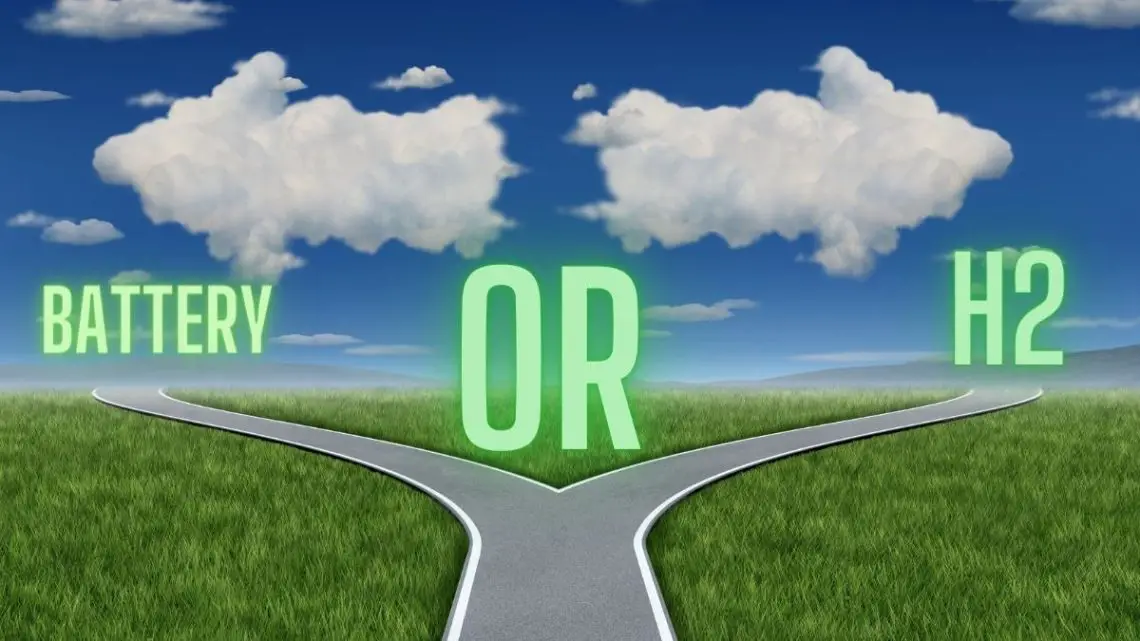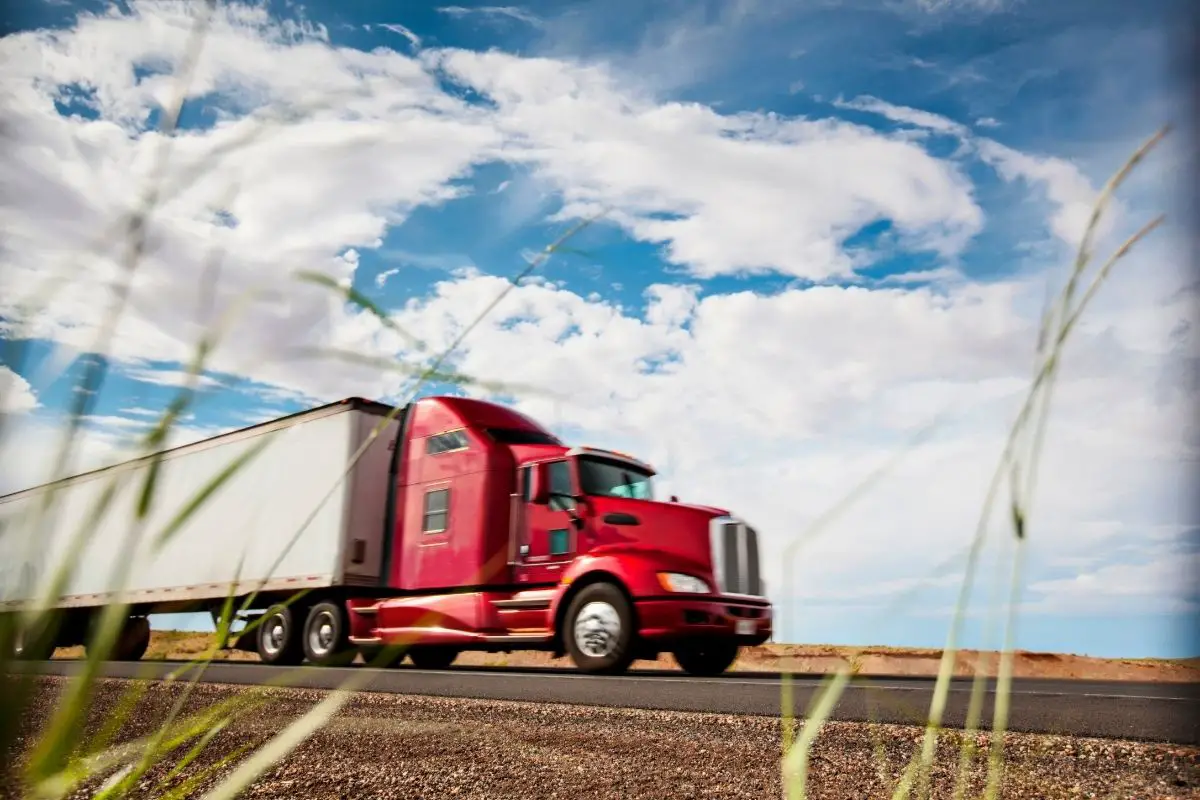
Are electric or hydrogen trucks the future of US transport?
April 14, 2022Vehicle makers have reached the point that they need to choose their decarbonization direction.
Vehicle manufacturers are facing a choice between battery electric or hydrogen trucks when it comes to cutting emissions and meeting upcoming climate change regulations.
Making the wrong selection could end up costing them billions of dollars as transport decarbonizes.
But what has yet to be solidly decided is whether it will be battery electrics or hydrogen trucks found most often on roads across the United States. This is nothing new for the industry. Trucking was already stepping up to the line in moving away from its reliance on diesel fuel in order to reduce urban air pollution. That said, the Russian war in Ukraine has only accelerated the need to move forward as fuel prices have skyrocketed since that time.

That said, it has yet to be perfectly clear whether rechargeable batteries or fuel cell trucks are the direction the sector is headed. There are arguments to be made in favor of both technologies. That said, most vehicle manufacturers are finding that they need to commit to one of them and double down in the hopes that this will prove to be the profitable choice in years to come – years that are not looking as distant as they did in only 2020 and 2021.
It’s clear to see why hydrogen trucks have a strong backing even as H2 passenger cars do not.
The vehicle manufacturers that are pushing toward battery electrics includes Volkswagen’s trucking unit, Traton. It has committed to rechargeable electrics because they are broadly seen as an efficient choice. The technology is, after all, spreading quickly among passenger vehicles, which means that charging stations are becoming increasingly commonplace, particularly in urban centers.
On the other hand, Daimler Truck and Volvo each feel that it will be the fuel cell truck that proves itself in this industry. The reason is that refueling is considerably faster than recharging batteries, which makes notably more sense for use with long-haul vehicles.
The decision is a substantial one. A recent New York Times article equated it to investing in VCR technology versus Betamax. Choosing the wrong one has the potential to be fatal to a vehicle manufacturing company.
The critical nature of choosing correctly between battery electrics and hydrogen trucks.
The main challenge vehicle makers are facing right now is that it takes years to design and produce a new truck. Therefore, the decision a company makes now must be one that it will be able to successfully pursue for at least a decade.
“It’s obviously one of the most important technology decisions we have to make,” said Daimler Truck management board member Andreas Gorbach. That company owns Freightliner, the largest truck maker in the world.
The environmental impact must also be considered as the entire point of the choice is the climate crisis.
Since public health and the environment are the entire reason for decarbonization, they must also be taken into account when considering the choice between battery electric or hydrogen trucks. The wrong choice may also mean that it will take longer to decarbonize the trucking industry than scientists say is available for limiting the worst impact of climate change.
In the United States, around 7 percent of total greenhouse gas emissions are produced by medium- and heavy-duty trucking. These are vehicles that are active on the roads for notably longer than passenger cars.
While the time to make the decision is already short, the Russian war in Ukraine has only restricted the amount of time companies have to choose. The crisis has underscored the geopolitical and financial risk of remaining dependent on fossil fuels.
In the passenger vehicle market, battery electric car sales have taken off. That said, trucking is different as mass production of emission-free vehicles remains in its early infancy. Buyers and manufacturers alike are now carefully weighing whether their future is in battery electrics or hydrogen trucks.



 With over 15 years of reporting hydrogen news, we are your premier source for the latest updates and insights in hydrogen and renewable energy.
With over 15 years of reporting hydrogen news, we are your premier source for the latest updates and insights in hydrogen and renewable energy.
The question is correct, the options are limited. The combustion engine with H2 is the most prepared option, lowest cost, highest durability and best TCO option. It can be seen in several papers presented in Baden Baden February 2022. Fuel consumption results are so interesting even with low pressure direct injection technology that it indicates similar or better economical performance compared to Diesel when you consider the costs of fuel in USA!
In order for hydrogen to truly be a solution to future energy needs it must be made inexpensively and in large volumes. The non-fossil ways to do this are nuclear power and wind/solar power. Given the large advantage in energy density of nuclear power I think that it will be the future of efficient and economical hydrogen production.
It would be challenging to dispose the nuclear waste if power generation is cranked up
The first point to make is that the traction of battery or hydrogen powered trucks is the same. A battery powered vehicle has all its driving energy stored in a battery which is also used to recover energy from retroactive braking technologies; a hydrogen powered truck is the same, with a smaller battery backed up with electricity from an hydrogen fuel cell. The choice comes down to the weight of the total energy storage; a battery EV stores all the energy in the battery, so when more energy is needed, the larger and heavier the battery will be, with a FCEV some of the energy is stored outside the battery in a hydrogen tank and a fuel cell, so it all comes down to the total energy density of the energy storage system chosen. The amount of energy needed on board will depend on the duty of the truck; for short haul work of a light weight truck a battery only system is probably sufficient and will be more energy efficient than an FCEV, which is why EV cars are generally preferred to FCEV cars. Another consideration is the time needed to charge a battery only truck; if it can be left to charge overnight, battery only may be a good choice, but if it must be refueled quickly, then an FCEV truck would be better. And the availability of fuel cell grade hydrogen in the operating area will have an impact as well as the cost of hydrogen.
Very wierd question. Hydrogen-battery electric, of course!
It is for sure the use case that will determine BEV versus FCEV.
I am a believer that both are very complementary and bring a solution to decarbonize this hard to abate sector.
Agreed. This “either/or” scenario is very unhelpful, and I can see fleets of both BEVs and FCEVs, deployed in accordance with the route and duty cycle. We need both!
Good day,
A good general article, but what would make it a great article is illustrating the TCO for long haul Class 8 trucks. Cost of Hydrogen / kg versus diesel. Chart projecting Hydrogen $/kg / time. Implementation of filling stations over time etc.. Basically the ROI for long haul trucks is now. Implementing electrolyzers immediately and producing H2 everywhere will bring down price and accessibility will make it ubiquitous.
Undoubtedly, the choice is one that is primarily related to the strategy of developing transport platforms in the military field.
It would be downright ridiculous for an armored vehicle, small or large, to get stuck, because the battery power has run out, not to mention aviation, where the jet engine will provide supersonic speeds, in while the electrically operated propeller has its well-known limitations.
The problem with electric vehicles is the power is sourced from utilities burning oil,coal and gas. Where is the carbon eliminated?
How do Evs reduce carbon if they get power from oil and coal burning utilities. They are a fraud.
Don’t underestimate the power of the hydrogen fuel cell
Why no mention of Renewable Natural Gas as the replacement fuel for diesel? It is a Carbon Negative, Near Zero Emission fuel and has a better “Carbon Score” than either Total Electric or Hydrogen Fuel Cell. These trucks are available today with the ability of using present natural gas infrastructure to transport RNG. Also the ability to use existing Internal Combustion Engines providing power and torque equal to diesel. Don’t pretend that wind/solar will be able to produce all the electricity needed for present electricity use PLUS electricity for All Electric Transportation. If you’re using fossil fuels to produce the electricity–where’s the environmental benefit. RNG is NOT a fossil fuel. Every molecule of methane captured from organic waste to produce RNG is one less molecule of methane released to the atmosphere.
H2 combustion engines?! While I’ve seen SOME chatter on that silliness, MOST of what I’ve seen in fuel cells… when makes the entire debate about electric vs hydrogen totally out of place.
A battery electric car (use Tesla as an example) carries a 1400 pound battery pack. A fuel cell car carries a set of light weight tanks at around 60 pounds to carry around 5 kilos of H2. A fuel cell at about 100 pounds and maybe 50 additional pounds of ancillary equipment to tie it all together.
So… 1400 pounds for energy vs 200 pounds. Notice, I never mentioned the electric motors used. They’re the same no matter what the electric source is.
And someone is seriously thinks H2 combustion engines are a good idea?!
There is a technology where there is no need to store H2, but produce H2 in real time.
A second advantage is that H2 production is greener and cheaper than conventional electrolysis H2 production.
wppenergy.com/hydrogen-fueling-stations/